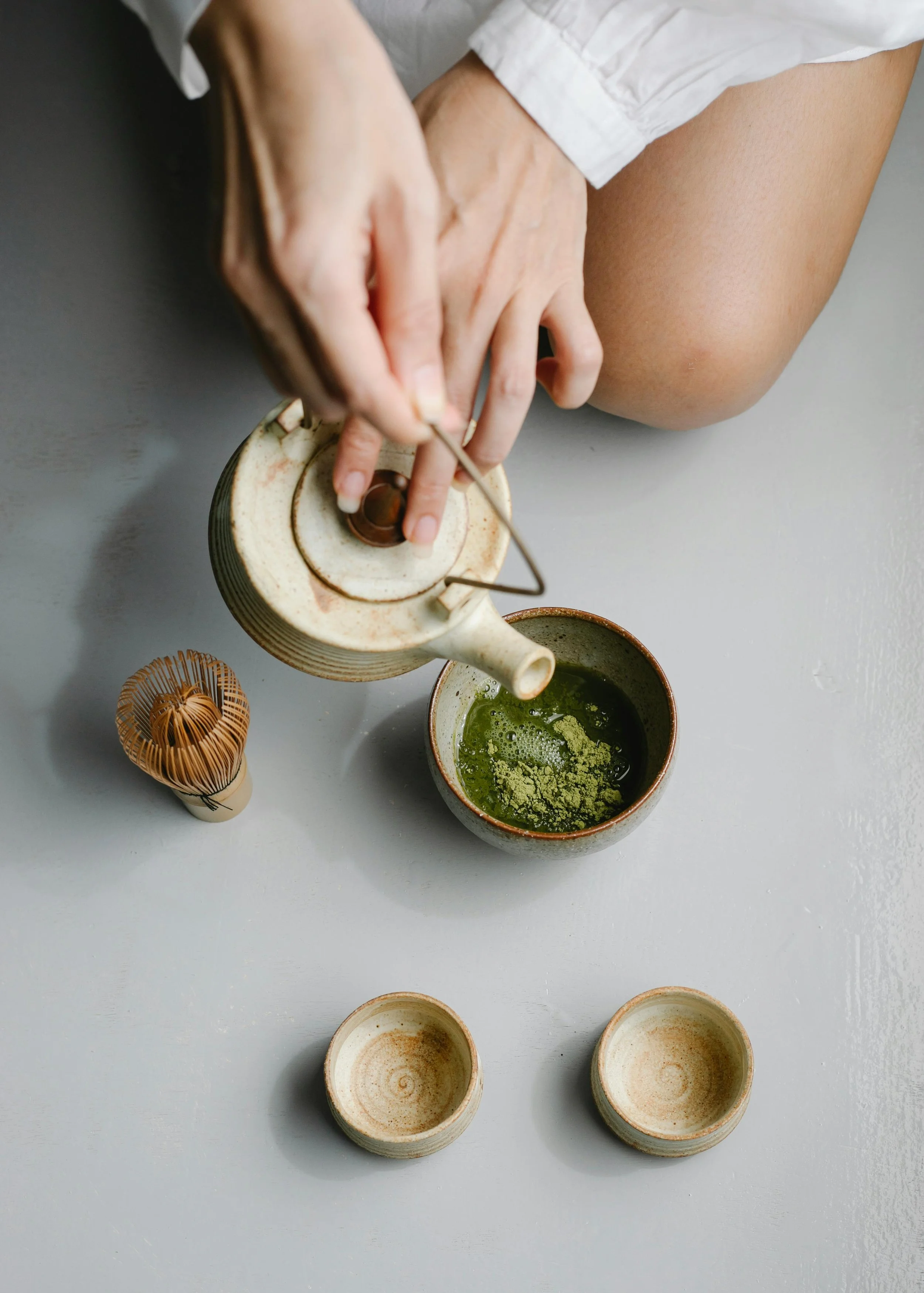GREEN TEA AND EXERCISE: The ultimate antioxidants
Unpopular opinion: I am a die hard for green tea. The delicate umami flavors of a perfectly brewed cup of green tea takes me to wonderland at the first sip. I love LOVE green tea and you know what else I love? Exercise, in all its forms.
Now, there is already quite a lot of science behind caffeine consumption and exercise proving that it can enhance power output during a workout. But how about green tea?
Let’s dive right in.
You know this: regular physical activity is GOOD for us; it protects our cardiovascular health and enables our organs to function at their best. BUT, there is a time where intense and/or prolonged physical activity (hello HIIT workouts) can disturb our delicate physiological balance and create oxidative stress, releasing free-radicals. Free-radicals play beneficial roles in the body, but they become vilains when they outnumber their antioxidants counter parts (i.e. a state of oxidative stress); it is all about balance and when there are too many free-radicals, they just ruin it. On the long run, oxidative stress damages cell membranes and makes cells prone to malfunction. Now, am I telling you that exercise could actually be…. Bad? NO.
Endurance-based activities like swimming, jogging, walking etc… reduce the effect of oxidative stress by releasing more antioxidants, bringing balance back into the equation.
Strength-based activities also do that, but more in the rest period. What I mean is that the intensity of strength training will increase oxidative stress, but the rest and relaxation that follows the training session releases large amounts of antioxidants, bringing balance back to our body once again (DON’T SKIP REST DAYS!). With regular physical activity, the body adapts to demands and suffers less and less from exercise-induced oxidative damage.
Now, what does IT have to do with green tea?
Amongst all tea types (green, black and oolong), green tea is the richest in catechin, a powerful polyphenol. And what are polyphenols? Antioxidants! If you want to nerd out, epigallocatechin gallate (EGCG) is a type of catechin that has the most health properties and is present in green tea at 60% (the rest is the 3 other types of catechin). Catechin plays a direct role against oxidative stress by activating antioxidant action and suppressing pro-oxidants.
So what does that mean regarding exercise?
In their 2021 study, Nobari et. al explain that catechins reduce the oxidative stress induced by exercise, making it a great tool to ensure an optimal recovery. On the performance side of things, green tea has also been shown to increase the amount of energy available with a greater lipid metabolism. This means that our body becomes more efficient at burning the fuel available (lipids) and gives us greatest energy and performance during exercise.
So how much and when should one drink green tea to maximize physical activity?
The usual recommendation is 10g of green tea leaves for 1L of water.
Since green tea has the potential to increase the amount of energy available to workout, drinking it before or/and during exercise may enhance its performance effects. If you would rather drink it after exercising, green tea promotes a healthy recovery. So it’s up to you!
Green tea is first and foremost a ceremonial practice to enjoy the present moment; so make sure to take the time to choose a tea that you like and truly enjoy it as the leaves work their magic.
My tea preferences
Le Palais des Thés is my absolute favorite tea brand. It is a French brand and they have a U.S. website from which you can select your tea.
I like mine au naturel without any other ingredients (although vanilla and green tea marry very veery well) with pronounced nutty and umami flavor profiles. My best advice is always to walk into a store and make your purchase an experience.
Happy tea drinking!
